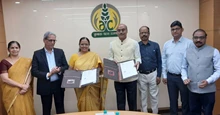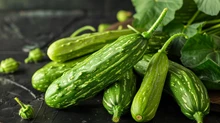
Working within the plant itself to increase its ability to absorb nutrients yields big results. The challenge with crop nutrition is finding the right balance between the crop needs, the right formulation, the right timing, and always – the return on investment. The more efficiently nutritional products can be applied and absorbed by the plants, the lower the cost and the better the results.
Much of the focus has been on ways to design fertilizers to be soluble and available to the plants when they need it. But one company looked at ways to work within the plant itself to get it to take up nutrients faster and use them more efficiently. The product resulting from that research is KeyPlex 120, a highly concentrated nutritional supplement applied alongside other macro or micronutrient products. The results are noticeable in terms of yield increase and quality.
“We have seen 17% to 22% increases in yield on greenhouse peppers and tomatoes,” says Gerald O’Connor, CEO of KeyPlex. “And the fruit is firmer, so the quality when it reaches grocery stores is better. We’ve done many trials on specialty fruits vegetables, citrus and tree nuts, and we see more root mass, better brix, more fruit , better plant health, and in the case of the almonds, faster trunk caliper growth in young trees”
How It Works
KeyPlex prides itself on its more than three decades of research into plants’ metabolic pathways and how to elicit the systemic acquired resistance (SAR) response, which is a well-known plant defensive mechanism against pathogens and damage from pests. KeyPlex researchers used that knowledge to supercharge the mitochondria – the source of energy within the cell that breaks down sugars produced during photosynthesis into proteins and enzymes needed by the plant – to take up and use nutrients more efficiently.
“Without going too deep into the photosynthesis and respiration processes, we are providing exactly what the plants need in the form criterial resources ,” O’Connor says. “The plant expends energy to grow, produce and to fight disease. If you can provide additional energy to the Krebs cycle in the plant the overall performance and production is better. KeyPlex 120 gives the plants those resources directly, which is much faster and more efficient for the plants.”
Big Bang for Small Bucks
KeyPlex 120 is a highly concentrated nutritional supplement applied alongside other macro or micronutrient products.
A 5 fl. oz/acre application of KP 120 on seedling tomatoes at transplant (left) produced a 20 to 25% increase in root mass and top growth compared to a standard treatment (right).
“KeyPlex 120 is an additive to your nutritional program, O’Connor says. “It enhances the efficacy of what you apply. For example, we’ve had fantastic responses when it is applied at transplant in tomatoes. You’re right on the cusp, where cold may be a problem, which can take a heavy toll on your transplants. When you are getting better uptake of early nutrients, it can make a big difference in how they survive and respond . In our trials we’ve seen an increase of 20 to 25% increase in root mass and top growth in seedling process tomatoes with a 5 fluid oz. band spray.”
Because KeyPlex 120 is highly concentrated, only a small amount per acre is needed. O’Connor says the cost is about $5.00 to $10.00 /acre depending on the crop.
O’Connor stresses that KeyPlex 120 is a supplement to traditional nutrients, not a replacement. But it makes those nutrients work better. KeyPlex 120 is easily tank mixed with most other products, and can be applied in multiple ways, including foliar, aerial spraying, and drip irrigation.
Melons fertilized with KeyPlex 120 (right), which activates the plants’ systemic acquired immune response, are able to resist CYSDV caused by Crinivirus much better than a field treaded with standard fertilizer.










